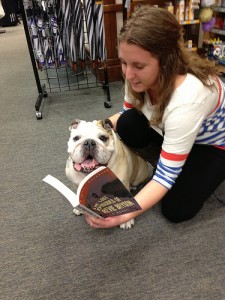Exposition: how does the writer work in exposition? What makes the exposition different from what you might find in an encyclopedia—in other words, how does she process the information to make it her own?
Craft: what moves might you steal from this essay?
Big Question: What’s the big question this writer is exploring in this essay? Where does she end up in terms of her answer? How does her view evolve through the course of the essay?
Turning to your own subject: Frame at least three questions about your topic. They should be arguable, and something you’re genuinely interested in exploring (If it feels like a boring academic exercise to you, imagine how boring it will be to your reader).
Next, pick the question you find most interesting and/or arguable. Do a little writing on both sides of your question. For instance, if your question is something like Should people be allowed to flip off a police officer? you might first do some writing on the Yes side, giving reasons and rationale for why we should give cops the bird, then turn around and make a case for the No side. It’s a good way to start exploring your question, and to avoid making up your mind prematurely.
For this last writing exercise, don’t look at your annotated bibliography or your sources. Just go from memory.

